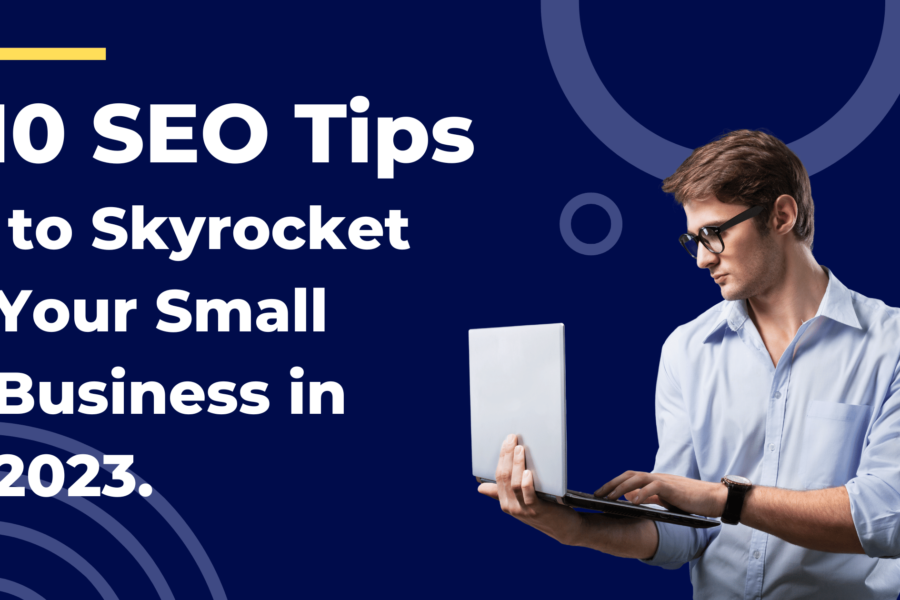
Social media marketing has become an integral part of modern business strategy in recent years. The growth of social media platforms such as Facebook, Instagram, Twitter, and LinkedIn has provided businesses with new opportunities to reach their target audience and establish a strong online presence. In 2023, the importance of social media marketing has only increased, as more and more consumers are turning to social media to research products and make purchasing decisions.
One of the main benefits of social media marketing is the ability to reach a large and diverse audience. With billions of active users on various social media platforms, businesses can target their ideal customer demographic and engage with them in real time. This can lead to increased brand awareness, customer engagement, and ultimately, sales.
Another benefit of social media marketing is its cost-effectiveness. Compared to traditional marketing methods, social media marketing is relatively inexpensive and can provide a high return on investment. This makes it an attractive option for businesses of all sizes, from small startups to large corporations.
11 Reasons Why Is Social Media Important for Your Business in 2023?
In the ever-evolving digital landscape, social media has emerged as a powerful tool for businesses to reach and engage with their target audience. With billions of active users on various social media platforms, businesses can take advantage of this expansive reach to increase brand awareness, improve customer engagement, drive website traffic, and ultimately, boost sales.
In 2023, social media is poised to play an even more important role in the success of businesses, making it imperative for companies to have a strong and strategic presence on these platforms. From cost-effectiveness to valuable data insights, the benefits of social media marketing are numerous and far-reaching. By harnessing the power of social media, businesses can stay ahead of the competition and achieve their marketing goals.
1. Building Brand Awareness
Building brand awareness through social media can be achieved through a strategic approach that leverages valuable content, advertising, and user-generated content. By positioning your brand as an authority in your industry through consistent, relevant content, you can increase brand recognition and trust among your target audience. Utilizing social media advertising options can also amplify your reach and visibility, helping you reach even more people.
User-generated content such as reviews and testimonials can further enhance your brand’s credibility and boost brand awareness. Implementing these tactics can result in a highly effective approach to elevating brand awareness and attracting new customers through social media.
2. Wide Reach
Leveraging the expansive reach of social media platforms can be a powerful tool for businesses looking to increase their audience and exposure. With billions of active users on various platforms, businesses can take advantage of this vast reach to connect with their target audience, share their message, and grow their brand.
Utilizing features such as advertising, targeting options, and hashtag campaigns can also enhance reach and visibility, allowing businesses to reach even more people and achieve their marketing goals. To maximize the impact of social media’s wide reach, businesses should develop a strategic approach that effectively leverages the unique features of each platform.
3. Improving Customer Engagement
Social media provides businesses with an opportunity to foster meaningful engagement with their target audience through two-way communication and interactive content. By consistently posting valuable and relevant content, businesses can spark conversations and encourage their audience to share their thoughts and opinions. Utilizing features such as comments, direct messages, and social listening can also enhance engagement, allowing businesses to respond to customer feedback, address concerns, and build stronger relationships.
To maximize engagement, businesses should adopt a customer-centric approach and create content that resonates with their target audience. Implementing a robust social media engagement strategy can result in increased customer loyalty, improved brand image, and a greater understanding of customer needs and preferences.
4. Cost-Effective Marketing
Social media marketing can be a cost-effective way for businesses to reach and engage with their target audience. In comparison to traditional advertising methods, social media marketing offers a more budget-friendly option for businesses of all sizes. Utilizing features such as organic posts, user-generated content, and influencer marketing can also help businesses maximize their marketing budget. By developing a strategic and targeted approach, businesses can effectively reach their target audience and achieve their marketing goals without breaking the bank.
Additionally, the ability to track and measure the success of social media marketing campaigns allows businesses to refine their approach and optimize their investment. Overall, social media marketing can be a highly cost-effective option for businesses looking to reach and engage with their target audience.
5. Enhancing Customer Experience
Social media allows businesses to create a more personal and intimate connection with their customers, leading to a better overall experience. By utilizing features such as comments, direct messages, and social listening, businesses can respond to customer feedback and address concerns in real time. Additionally, social media can also be used to offer personalized promotions and incentives, further personalizing the customer experience. By incorporating a customer-focused approach in their social media strategy, businesses can create a more positive and memorable experience for their customers, leading to increased customer loyalty and satisfaction.
6. Driving Website Traffic
Social media can be an effective tool for driving website traffic and increasing online visibility. By consistently posting valuable and relevant content, businesses can entice their target audience to visit their website and learn more about their products and services. Utilizing features such as social media advertising, cross-promotion, and link sharing can also enhance website traffic, allowing businesses to reach even more people and drive more visits to their sites.
To maximize the impact of social media on website traffic, businesses should develop a strategic approach that leverages the unique features of each platform and creates a seamless experience for their audience. By combining valuable content, effective promotion, and a user-friendly website, businesses can drive significant website traffic and reach their online goals.
7. Boosting SEO
Social media can play a crucial role in boosting a business’s search engine optimization (SEO) efforts. By consistently publishing valuable and relevant content, businesses can increase their online visibility and reach more people through organic search results. Utilizing social media to promote website content, build backlinks, and engage with industry influencers can also enhance SEO efforts. To maximize the impact of social media on SEO, businesses should adopt a holistic approach that incorporates social signals into their overall SEO strategy.
Utilizing high-quality content, targeted keywords, and a strong social media presence can help businesses achieve higher search engine rankings and reach their target audience more effectively. By investing in a robust social media and SEO strategy, businesses can drive traffic, increase brand awareness, and achieve their online goals.
8. Connect Social Posts to Opportunities
Social media provides a platform for businesses to connect their online presence to tangible opportunities. By promoting events, sales, and special offers through social media, businesses can drive foot traffic and increase in-person sales. Social media advertising, cross-promotion, and influencer marketing can also enhance the reach of these promotions, allowing businesses to connect with more people and drive more opportunities.
For maximum impact, it is crucial for businesses to develop a strategic approach that leverages the unique features of each social media platform. This means creating a consistent and seamless experience for their audience, with a focus on valuable content and effective promotion. By combining these elements with a customer-focused approach, businesses can connect their social media presence to real-world opportunities and drive real business results.
9. Build Brand Authenticity
Social media provides a unique opportunity for businesses to build brand authenticity and establish a genuine connection with their target audience. By consistently publishing relatable and transparent content, businesses can showcase their personality, values, and vision, and create a deeper emotional connection with their audience. Engaging in authentic conversations and responding to customer feedback can also enhance brand authenticity and demonstrate a commitment to customer satisfaction.
To maximize the impact of social media on brand authenticity, businesses should adopt a customer-focused approach that prioritizes transparency and genuine engagement. Utilizing customer stories, behind-the-scenes content, and real-time updates can help businesses build a strong and authentic brand identity that resonates with their target audience. By investing in a robust social media strategy that emphasizes brand authenticity, businesses can build trust, increase customer loyalty, and achieve their online goals.
10. Providing Competitive Advantage
Social media can provide a significant competitive advantage for businesses in today’s highly connected world. By utilizing social media to reach a wider audience, engage with customers, and showcase their brand, businesses can differentiate themselves from their competitors and stand out in the marketplace. Utilizing social media analytics and insights, businesses can also gain a deeper understanding of their target audience, including their preferences, behaviors, and pain points, which can inform product development and marketing strategies.
To maximize the impact of social media on competitive advantage, businesses should develop a comprehensive strategy that leverages the unique features of each platform. This includes regularly publishing valuable content, engaging with customers, and utilizing social media advertising and influencer marketing. By embracing social media as a key component of their overall marketing strategy, businesses can stay ahead of the competition, reach more people, and achieve their online goals.
11. Measuring Success
Social media provides a wealth of data and analytics that can help businesses measure the success of their online efforts. By tracking metrics such as engagement, reach, website traffic, and conversions, businesses can gain valuable insights into the effectiveness of their social media campaigns and strategies. These insights can inform decision-making and help businesses optimize their approach for better results.
To effectively measure the success of their social media efforts, businesses should establish clear and quantifiable goals, such as increasing website traffic, boosting brand awareness, or driving sales. By regularly reviewing their social media metrics and comparing them to their goals, businesses can identify areas for improvement and make data-driven decisions that drive success. In today’s highly connected world, measuring the success of social media efforts is essential for businesses to achieve their online goals and stay ahead of the competition.

